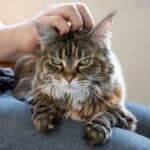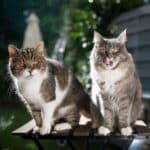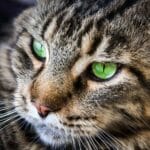Maine Coon cats are some of the most regal-looking felines around. From their thick, fluffy manes to the trademark "M" on their foreheads and fur-tipped ears, these cats are beautiful to look at and perfect for snuggling.
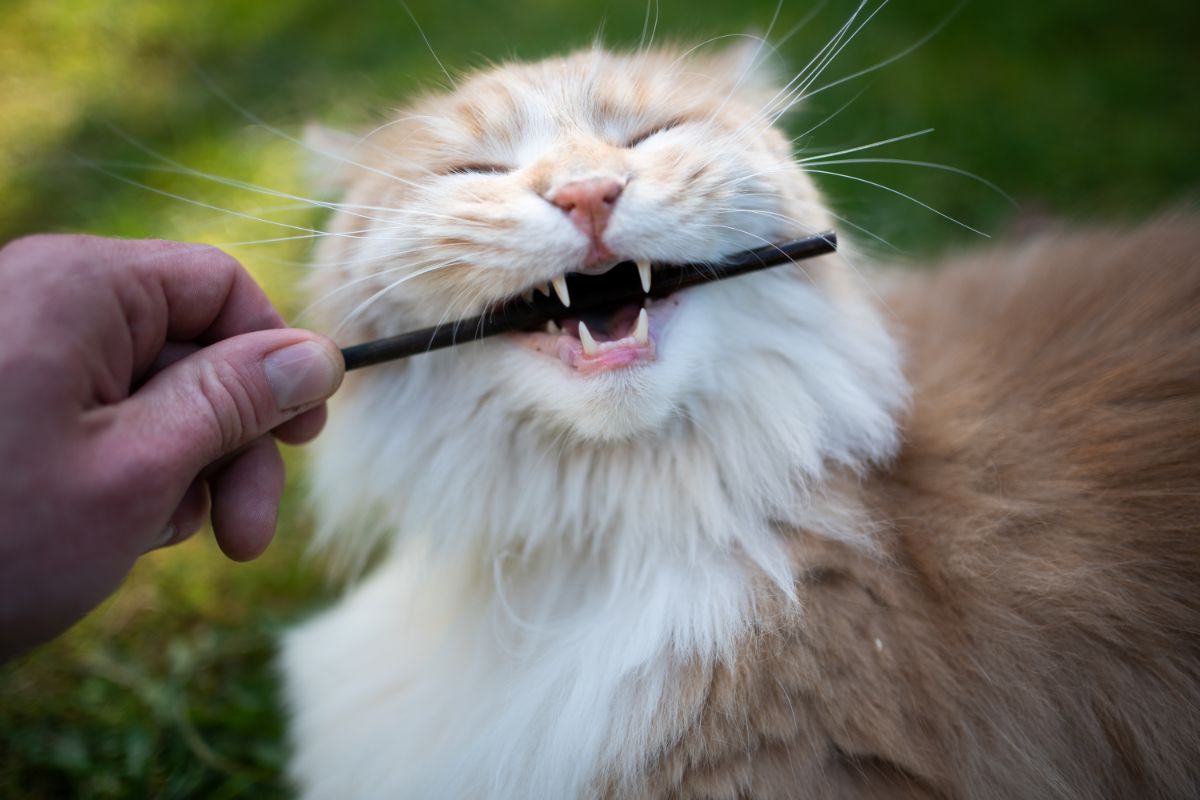
However, anyone who's been on the receiving end of a Maine Coon bite will tell you they're no picnic. Typical cat bites can hurt, of course, but a Maine Coon's massive size causes its bite to pack an extra punch. But what is a Maine Coon's bite force? Keep reading to find out.
Jump to:
Bite Force Explained
Before going further, let's outline what bite force is. An animal's bite force is the amount of pressure it places per square inch when it bites. It's measured in pounds per square inch.
What Cat Breed Has the Strongest Bite Force?
The cat with the strongest bite is not a domestic cat at all, but rather the jaguar. With an estimated bite force of 1500 PSI, the jaguar’s bite packs a real punch!
In terms of domestic cat breeds, it is likely that the Maine Coon has the strongest bite when measured by PSI. However, as no studies have been done on this topic, it cannot be said definitively.
What is a Maine Coon's Bite Force?
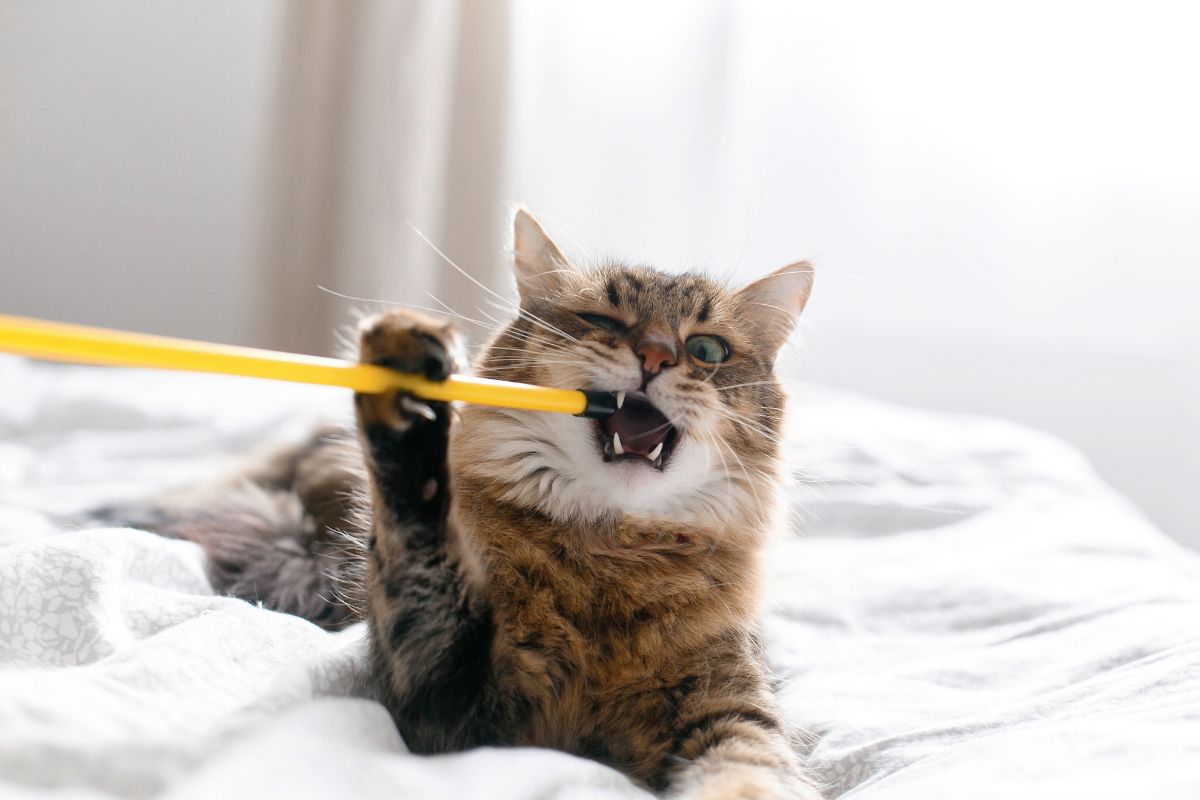
The bite force of a domestic cat can range from 10 PSI to 75 PSI. Considering a Maine Coon can weigh upwards of 25 pounds, it stands to reason their bite force would be at the high end of typical.
Although Maine Coons are docile cats that make excellent companions, their high bite force makes it essential you properly socialize and train them. They were originally bred as hunting cats, so their teeth can puncture bone and also deliver a nasty infection.
What Affects a Maine Coon's Bite Force?
Three main factors affect a Maine Coon's bite force: temperament, socialization, and triggers. You should consider each when bringing a new cat into your home to ensure you help prevent unnecessary or unwarranted aggression.
Temperament
The typical Maine Coon has a sweet disposition with few aggression concerns. Still, you'll always find cats with prickly temperaments, no matter the breed. Maine Coons are no exception. If your Maine Coon is on the aggressive side, give it space when you can and take steps to make it feel at home with you.
Socialization
Although kitty play dates might not be common, it's crucial that your Maine Coon is socialized and comfortable around the people and pets in your home. A cat that isn't fearful of anyone who gets too close is less likely to lash out or bite. This is especially true if you have children who might not always adhere to cat-approved boundaries.
Triggers
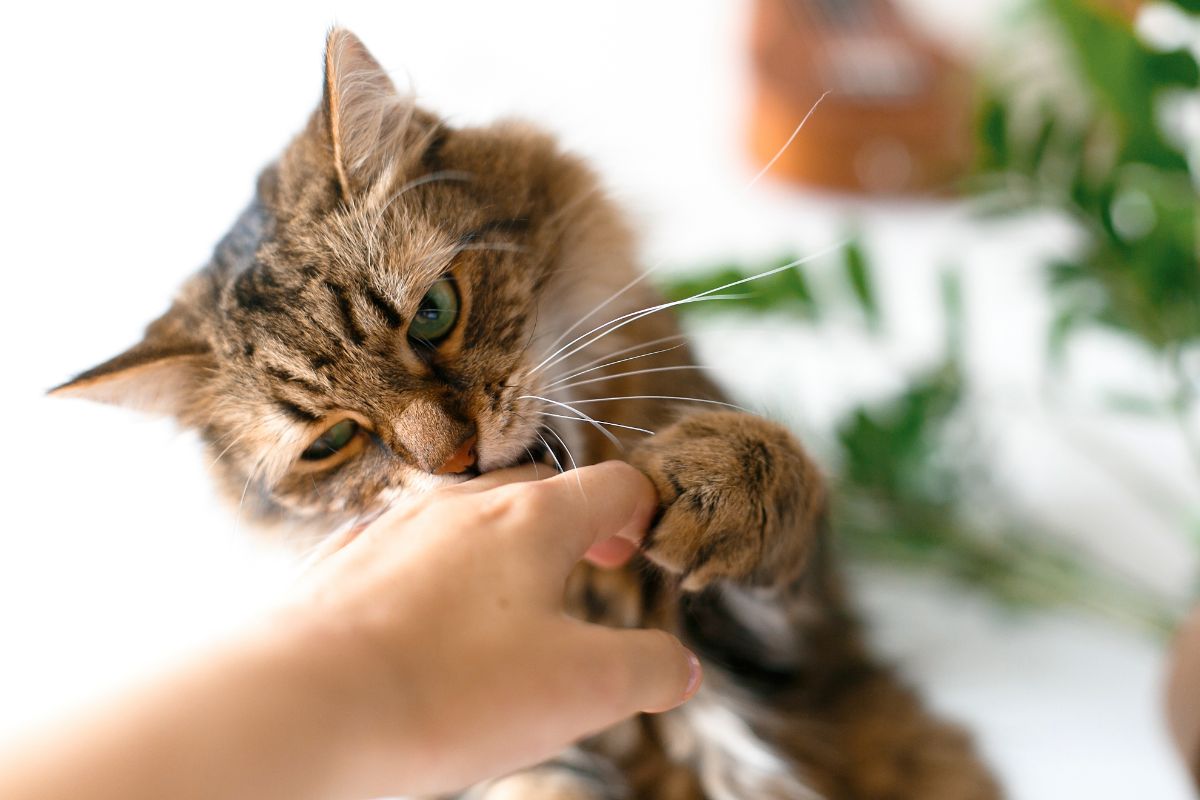
Knowing your Maine Coon's triggers is an excellent way to avoid getting bit. For example, some cats don't like when people approach too quickly, while others might not like when you pet their ears. Whatever the reason, if you can predict what will cause your Maine Coon to lash out, you can avoid a 75 PSI bite to the hand.
Wrapping Up
As one of the largest domestic cats, a Maine Coon's bite force tips the high end of the scales. You can expect a bite force of up to 75 PSI from your Maine Coon if you get bitten. So, if you want to avoid those punctures, be sure to take the time to get to know why your cat bites and what you can do to prevent it.

